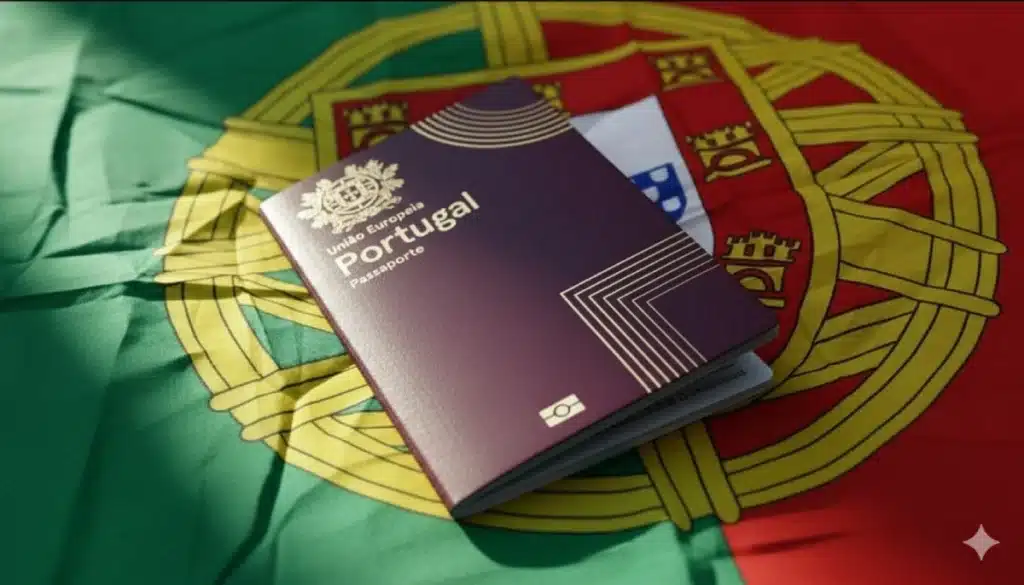Background and status
The primary vehicle for Portuguese citizenship law is the Nationality Act (Law No. 37/81) of 3 October. Over the years it has been amended several times to adapt to evolving migration, naturalization and diaspora-issues.
In recent years the Portuguese government has signaled the intention to make the access to Portuguese nationality more stringent. For example, a set of reforms for 2025 were proposed that would extend residence requirements, tighten integration tests and close the route for descendants of Portuguese Jews.
In June this year, the government announced more comprehensive reforms, and the Parliament has just passed through key amendments that significantly alter the nationality regime.
These reforms mark a significant shift toward stricter naturalization criteria. It is important to note that:
- This reform is still subject to constitutional review or promulgation by the President.
- The reforms are being framed in a context of rising political pressure in Portugal around immigration, integration, and national cohesion. For example, the influence of the far-right party Chega in pushing for tighter rules has been noted in commentary.
What has been approved
- The residence requirement for naturalization is being increased: For most non-CPLP (Community of Portuguese Language Countries) nationals the period rises from 5 years to 10 years. For nationals of Portuguese-speaking countries (CPLP) the period is proposed at 7 years.
- New integration requirements: Applicants will have to demonstrate not just language proficiency, but also knowledge of Portuguese culture, the history, national symbols, rights and duties of the Portuguese nationality and of the political organization of the Portuguese State and formally declare their adherence to the fundamental principles of the democratic rule of law.
- Possibility of losing nationality: Under the new rules, naturalized citizens may lose Portuguese nationality if convicted of serious crimes (prison sentence exceeding two years).
- Nationality will only be given to people deemed not to constitute a threat to national security or defense, namely through involvement in terrorism, violent crime or organized criminal activities, not being subject to restrictive measures imposed by UN or EU and/or have the capacity to ensure their own subsistence.
- Changes in how residence period is calculated. Namely, starting from the date of residence card issuance rather than from the residency application.
- Children born in Portugal from foreign parents living in Portugal, can only become Portuguese citizens if the parents are living in the country legally for at least five years before the child´s birth.
- The Sephardic Jewish naturalization regime will end.
Implications for applicants & affected parties
For foreign residents seeking Portuguese citizenship
- The longer residence requirement means that many non-CPLP nationals will now need 10 years of legal residence in Portugal before applying, which is double the previous standard in many cases.
- Applicants from Portuguese-speaking countries (CPLP) benefit from a shorter period (7 years), but still significantly more than 5 years.
- The increased integration and civic requirements mean that meeting mere residence will not suffice; evidence of language, cultural integration, and civic commitment may be required.
- In the case of special routes, such as Sephardic descendants, that are deeply affected by the changes, some applicants may need to accelerate their application before new rules apply.
For current residents and diaspora
- Those who have been counting residence time under the old regime may need to evaluate whether the law change will affect them—depending on transitional rules and effective date of the new law.
- The reforms may also influence decisions for investors, family-migrant routes, and persons from Portuguese heritage abroad.
For the state & political-society context
- The stricter rules reflect a wider trend (in Portugal and Europe) of tightening immigration and citizenship pathways amid concerns about integration, social cohesion and political pressures.
- The introduction of loss-of-nationality for certain crimes is a significant change (Portugal historically has been protective of acquired citizenship).
- The reforms may raise legal/constitutional issues (equal treatment, non-discrimination, retroactivity, etc.). Some commentators suggest the reforms may face challenge.
Transitional & practical considerations
- Applicants should verify which version of the law will apply to them. Often a new law will contain transitional provisions indicating from what date the new rules take effect (e.g., the date of publication, or applications filed after a cut-off date).
- Being resident of legal status is critical: the residence must be legal, regularized, with the required visa/permit in place. The counting of the residence period may change (for instance, from date of first residence card).
- Meeting language/civic requirements: prospective applicants should prepare for possible new tests or evidence of integration.
- For family members, children, and descendants: changes may affect eligibility criteria, so seeking advice early is prudent.
- If you are applying via investment, Portuguese-speaking country status, or other special routes, confirm whether the regime under the new law changes or whether you may still apply under the “old” rules.
What remains uncertain
- Exact effective date. While Parliament has approved key amendments, full implementation depends on promulgation by the President and publication in the Diário da República. The President will have 20 days to promulgate the law, exercise a political veto or request a constitutional review. If the President opts for the Constitutional Court review, the Court must issue its decision within 25 days.
- The detailed regulations, administrative practices, and how government agencies will implement the new rules in practice (e.g., how integration will be measured).
- Whether there will be transitional “grand-fathering” provisions for in-process applicants or residents already counting toward the previous 5-year requirement.
The latest news!
- On November 13, the Socialist Party (PS), the third most represented party in the Portuguese Parliament, sent the Nationality Law to Constitutional Court.
- This preventive review request is not a usual step. It was used only twice in 42-year Constitutional Court history.
- In our opinion, this move reflects the lack of consensus in the Portuguese society about the approved nationality law terms, the doubts about the legality of some of the approved matters and the absence of the Socialist Party from a consensual position with the Government in such a relevant law.
- Some of the main points of doubt from the Socialist Party are linked to how the time is counted, since it was approved that the counting would start from the day of issuance of the residence permit. It is also expected that the Constitutional Court will be looking at having two different timeframes for the period of residency until being able to apply for nationality: one of 7 years for the Portuguese Speaking Countries and EU citizens and another of 10 years for all the other nationalities.
- According to the Portuguese Press, the Social Democrat Party (PSD), the most voted party and the pilar of the Government, has expressed openness to negotiate this law with PS, in case the law raises issues by the Constitutional Court and is vetoed by the President.
- The Constitutional Court has a period of 25 days to answer PS´s review request.
- We think this are positive news for Golden Visa holders since increases the chance of having a more favorable outcome in terms of the counting period for nationality,
Conclusion
The reforms to Portugal’s nationality law mark a substantial shift in how the state regulates the acquisition and retention of Portuguese citizenship. The increase in residence requirements to 7 or 10 years, stricter integration tests, and potential loss of citizenship for serious crimes signal a move toward more selective naturalisation.
For foreign residents, applicants via descent or investment, and diaspora groups, the changes underscore the importance of acting early if one meets current criteria. For policy watchers, the developments reflect broader dynamics in Europe around citizenship, migration, and national integration.
Our recommendations:
- If you already meet the old residence requirement (5 years) and have submitted or are about to submit your citizenship application under the old rules, it may still be possible to proceed under the old regime, if you have the complete and correct set of documents on hand.
- If you are starting residence now or in near future, you should plan for the longer residence period (7 or 10 years) and prepare for stronger integration requirements (language, cultural knowledge).
- For descendant routes and children born in Portugal, check whether your situation qualifies under the older rules or whether you should accelerate before new rules become definitive.
- For the special Sephardic route, if you are eligible, you may wish to act sooner rather than later given the tightening of requirements.
- Monitor the date of publication of the new law in the Diário da República and whether transitional provisions (“grandfathering”) are included.
At least some good news…
AIMA, the Portuguese Immigration Agency, has started to clear the Golden Visa application backlog.
Several of our customers and their legal representatives have already been contacted and this process should be accelerated during the first week of November.
Notifications have been and will be sent with appointment dates for biometric data collection in Portugal.
If you are in this group, the main actions to be immediately taken are:
- Contact your legal representative as soon as you receive the notification.
- Ensure your Portuguese bank account has enough funds to make the payment of the residency card (€8,060.20 if submitted in person, or €6,179.40 if submitted online), and make sure you have all the necessary passwords to move money through the account. The amount applies per family member.
- Be ready to apply for a travel visa to Portugal, in case your passport does not grant a visa-free access.
The Blue Portugal is a leading immigration company in Portugal and has an enviable track-record and reputation in serving our customers.
Our strength is finding the appropriate solution according to your need and providing detailed analysis on the different investment options for you to make an informed decision.
If you have any questions, please do not hesitate to contact us.






